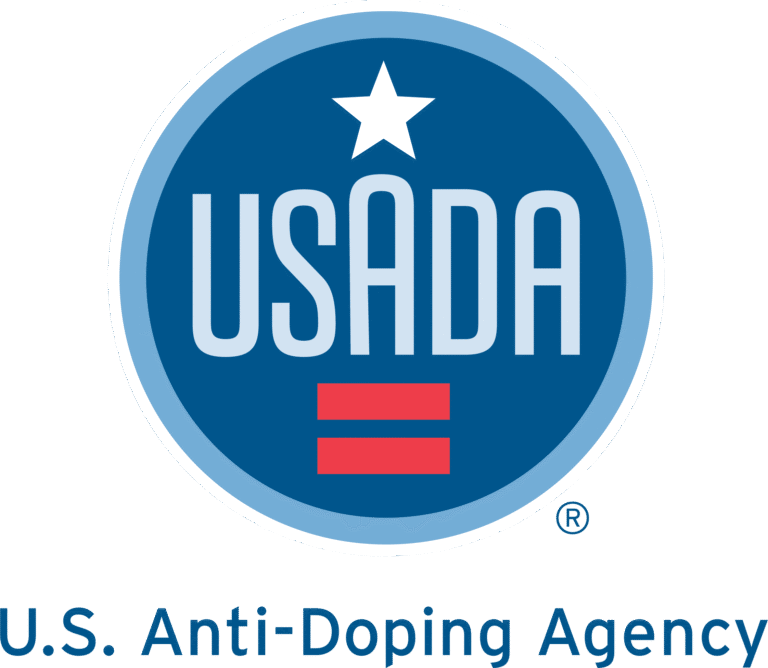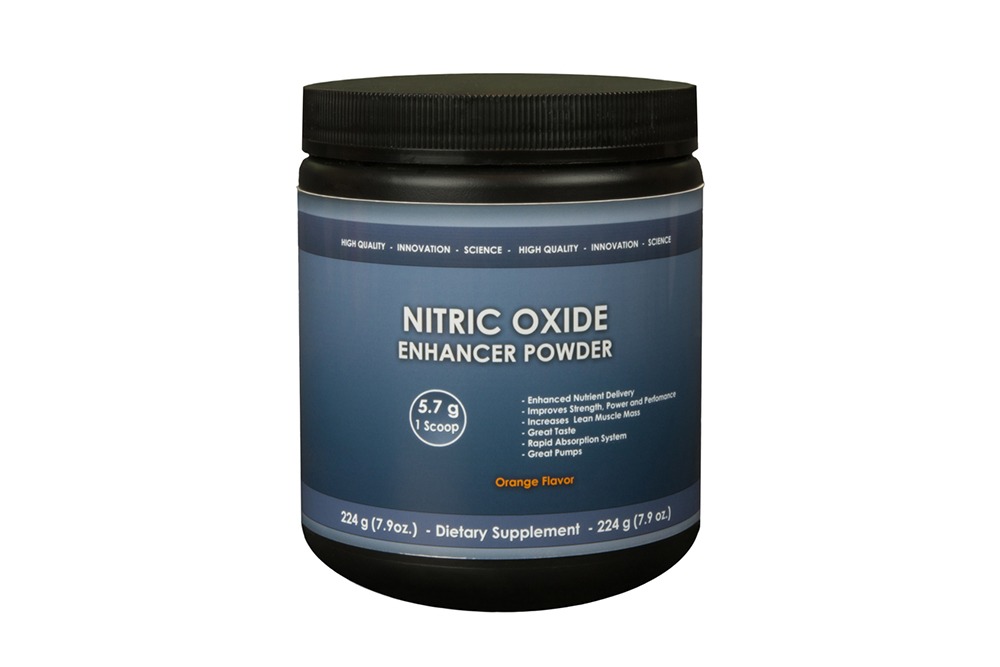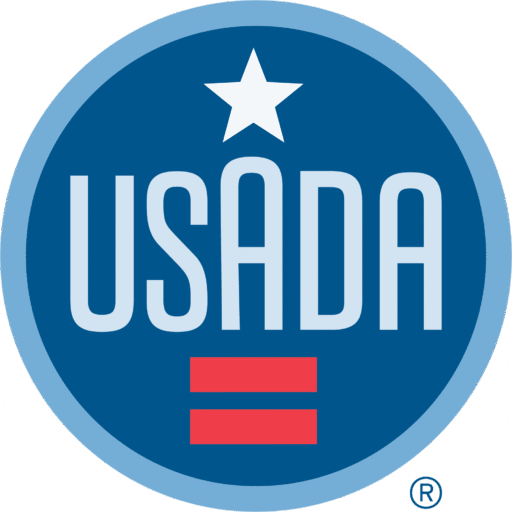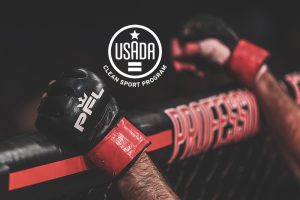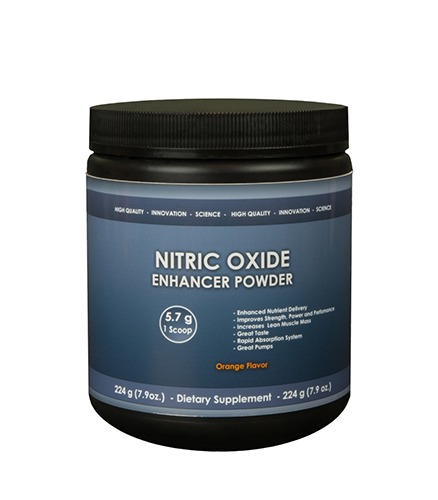 Nitric oxide (NO) has gained popularity in recent years as a way to potentially improve your ability to perform and recover faster by speeding blood flow to your muscles. However, this is one supplement you should definitely think twice about. There simply isn’t enough research or product testing available to suggest that these supplements will be beneficial and safe.
Nitric oxide (NO) has gained popularity in recent years as a way to potentially improve your ability to perform and recover faster by speeding blood flow to your muscles. However, this is one supplement you should definitely think twice about. There simply isn’t enough research or product testing available to suggest that these supplements will be beneficial and safe.
If you’re interested in the boosts that potentially come from a nitric oxide supplement, try adding nitrate-rich whole foods to your diet. That means stocking up on beets, arugula, and carrots in the produce section rather than scanning the supplement aisle of your grocery store. If you plan to add nitric oxide supplements to your routine despite the risks, remember that any supplement should be third-party tested to reduce the risk of a positive anti-doping test and/or negative health effects.
What are the health benefits of nitric oxide?
Nitric oxide is a gas that’s naturally produced in the body that increases blood flow by relaxing blood vessels, according to the U.S. Department of Defense. Because of this, it’s commonly found in pre-workout supplements that promise to boost strength and endurance. (Nitric oxide should not be confused with nitrous oxide, a gas that dentists occasionally use to calm a patient down.)
Here’s the catch: When you take a supplement that says it contains nitric oxide, that’s not possible. These pre-workout supplements cannot contain nitric oxide because it is only available in gas form. Rather, these supplements contain nitrates, found in the amino acids L-arginine and L-citrulline. Beets are commonly used to provide nitrates in these supplements, often in powder or liquid format.
The research on whether nitric oxide—or nitrates—can really improve performance is mixed. Research in adults has been unable to fully prove whether nitric oxide can truly improve performance in any measurable way. Studies have found that it may help alleviate muscle soreness or boost exercise performance, but the study groups have been too small to definitively say whether the supplements worked.
How much nitric oxide do athletes need to stay healthy?
There are no recommended amounts of nitric oxide, or even a recommended dosage of nitrate consumption. Your body produces nitric oxide on its own, and there’s no FDA-approved way to boost it.
Can athletes get enough nitric oxide through food alone?
There are great functional foods that can offer slight improvements in oxygen uptake and muscle efficiency. Fruits and vegetables like arugula, celery, carrots, and beets are rich in nitrates, which your body will naturally convert to nitric oxide. Adding fresh beet juice to a smoothie in the morning is not only a filling and tasty way to start your day, it has plenty of other positive benefits when compared to taking a powder or pill. Beet juice provides 3.8 grams of fiber, plus calcium, magnesium, vitamin C, and a whopping 442 mg of potassium.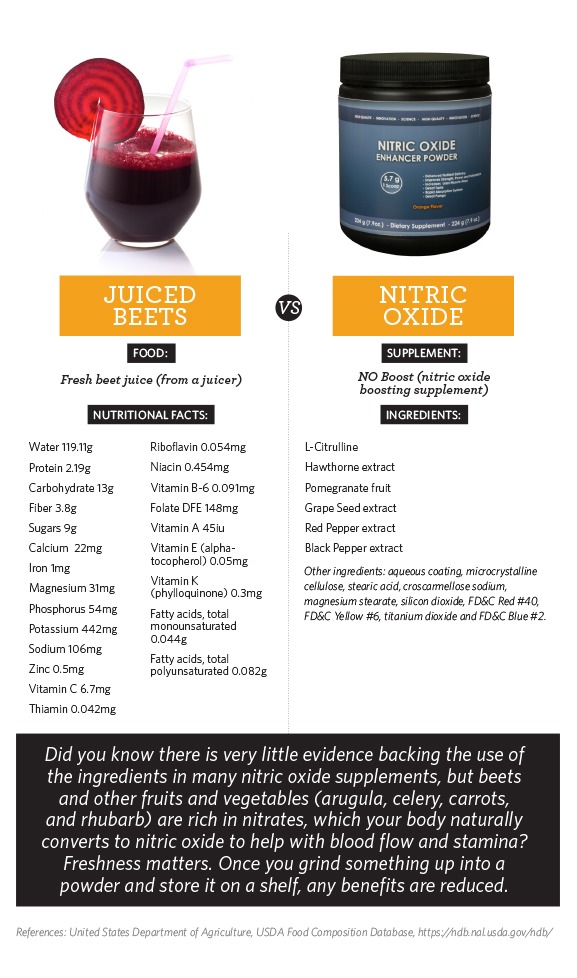
Why are nitric oxide supplements risky?
All supplements come with some amount of risk (see below) and nitric oxide supplements are no exception. Whenever the ingredients of a supplement like this claim to deliver the same results as substances your body already provides—the ones that boost endurance, strength, power, and stamina—you should be wary. These pre-workout supplements might contain large amounts of other ingredients like caffeine, which can have adverse effects, especially on young athletes.
Most sports dietitians recommend a food-first approach to nutrition. If athletes choose to use supplements despite the risks, USADA has always recommended that athletes use only dietary supplements that have been certified by a third-party program that tests for substances prohibited in sport.
Why are supplements risky in general?
Unlike pharmaceuticals, the FDA does not analyze the safety, efficacy, or label accuracy of supplements before they are sold to consumers. Manufacturers may misidentify prohibited substances on labels, or they may omit prohibited substances from labels altogether. In some cases, dietary supplements with illegal or dangerous ingredients have remained on shelves for years, despite FDA warnings and recall efforts. When it’s possible to skip a supplement, it’s better to choose food first, and save any supplementation for doctor-approved circumstances.
No organization can guarantee the contents or safety of any dietary supplements. In fact, that’s a major red flag to watch out for. Researchers have found that many supplements contain not a lot of what’s actually on the label, plus things that aren’t on the label. Consequently, athletes always assume the risk of testing positive for prohibited substances or experiencing negative health effects when they use supplements.
